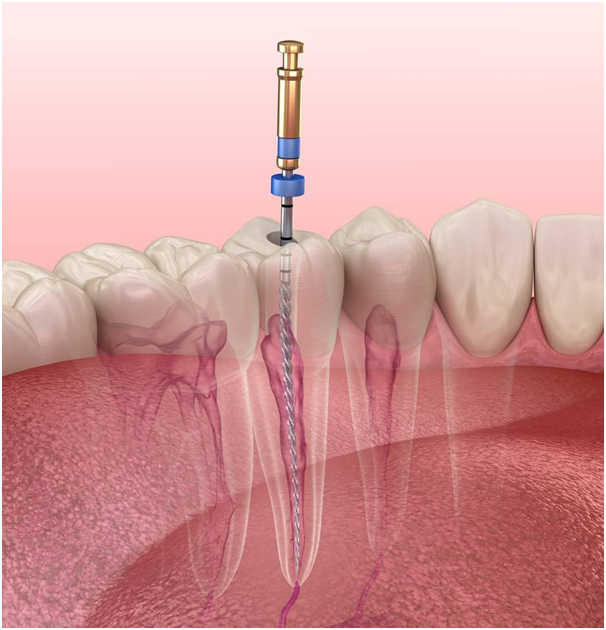Root Canal Treatment
Root Canal Treatment in Miami FL
- Pain-Free Root Canals in Miami
- Expert Care by Dr. Bruno Sharp
- Same-Day Emergency Appointments
- Save Your Natural Tooth
Root Canal Treatment
If you’re experiencing tooth pain or have been told you need a root canal, you want a trusted Miami dentist who combines advanced techniques, compassionate care, and proven results.
At Sharp Dentistry & Associates, we specialize in root canal therapy in Miami residents rely on to relieve pain, save natural teeth, and restore healthy smiles.

What Is Root Canal Therapy?
Root canal therapy, also known as root canal treatment, is a highly effective dental service designed to remove infected or inflamed pulp from inside your tooth. The pulp contains nerves, blood vessels, and connective tissue. When it becomes infected due to deep decay, cracks, or injury, it can cause severe pain, swelling, and even jeopardize your overall oral health. Left untreated, infection may spread to the jawbone or other teeth, sometimes without obvious symptoms.
Our Miami Dental specialist, Dr. Bruno Sharp, uses advanced diagnostic tools and gentle techniques to ensure your comfort at every step. The goal is to eliminate bacteria, stop the spread of infection, and preserve your natural tooth – avoiding the need for extraction whenever possible.
Signs You May Need Root Canal Treatment in Miami
Not all dental pain requires a root canal, but common signs include:
- Persistent toothache or pain when chewing
- Extreme sensitivity to hot or cold
- Swollen, tender, or discolored gums
- Gum lumps or pimples near the affected tooth
- Deep decay, cracks, or repeated dental procedures on the same tooth
A comprehensive dental examination by our skilled Miami dentist is essential for accurate diagnosis and treatment planning1.
What to Expect During Your Root Canal Therapy
- Examination & X-rays: We assess the affected tooth and surrounding area.
- Numbing & Isolation: Local anesthesia and a dental dam keep you comfortable and prevent contamination.
- Cleaning & Shaping: A small opening is made to remove the infected pulp. The canals are thoroughly cleaned, shaped, and disinfected.
- Filling & Sealing: The canals are filled with a biocompatible material, and the tooth is sealed to prevent future infection.
- Restoration: In most cases, a custom dental crown is placed to restore strength, function, and appearance1.
Benefits of Root Canal Therapy in Miami
- Preserves your natural tooth and prevents extraction
- Relieves pain and eliminates infection
- Restores normal chewing and function
- Prevents jawbone deterioration and misalignment
- Cost-effective compared to tooth replacement options
Alternatives to Root Canal Treatment
While root canal therapy is the preferred method for saving an infected tooth, extraction may be necessary if the damage is too severe. However, removing a tooth often requires additional procedures—such as dental implants or bridges—to restore function and aesthetics. Whenever possible, preserving your natural tooth is the best choice for your long-term oral health.
Why Choose Sharp Dentistry for Root Canal Treatment Miami?
- Experienced root canal specialist on staff
- State-of-the-art technology for precise diagnosis and treatment
- Compassionate, patient-focused care in a comfortable environment
- Transparent communication about your options and costs
- Convenient Miami location and flexible appointment times
Book Your Appointment for Root Canal Therapy Miami
Don’t let tooth pain disrupt your life. If you suspect you need root canal treatment in Miami, trust Dr. Bruno Sharp and our expert team for prompt, gentle, and effective care. Contact us today at 305-857-0990 or 305-677-8905 to schedule your consultation or learn more about our comprehensive dental services.
Frequently Asked Questions
Costs can vary based on the tooth’s location and complexity. Contact our office at 305-857-0990 or 305-677-8905 for a personalized estimate and to discuss insurance coverage.
Most root canal treatments are completed in one or two visits, each lasting about 60–90 minutes.
An untreated infection can lead to abscesses, bone loss, and even systemic health issues. Extraction is the last resort—saving your natural tooth is always the best option.


